Have you ever heard someone say that certain dog breeds are aggressive? It’s a common belief, but it’s more complex. Just like people, dogs have their own personalities and behaviors that many factors can shape.
What Dog Breeds Are Aggressive?
In this article, we’re going to jump into the topic of dog aggression, looking at different breeds and understanding why some dogs might act aggressively. By learning about dog behavior, we can help dispel myths and understand our furry friends better.
What is Aggression in Dogs?
Aggression in dogs means behaviors that are meant to scare or harm a person or another animal. Imagine a dog growling, barking loudly, showing its teeth, or even trying to bite. These actions can be scary, but it’s important to understand why a dog might behave this way.
Types of Aggression
Dogs show aggression for different reasons:
Fear-Based Aggression: This happens when a dog is scared. They might be afraid of strangers, loud noises, or new environments.
Territorial Aggression: Dogs often want to protect their home or space. If someone unfamiliar comes into their area, they might act aggressively to defend it.
Protective Aggression: Similar to territorial aggression, this occurs when a dog is trying to protect its family or other dogs.
Predatory Aggression: This is when a dog’s natural hunting instincts kick in. It’s more common in some breeds than others.
Pain-Induced Aggression: If a dog is hurt or in pain, it might act aggressively because it’s scared or uncomfortable.
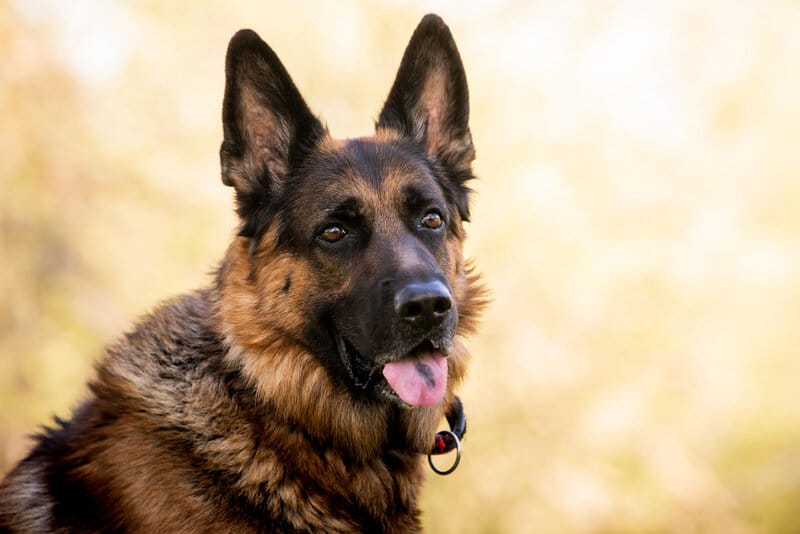
Factors Influencing Aggression
Several things can influence whether a dog shows aggression:
Genetics: Just like you inherit traits from your parents, dogs can inherit certain behaviors from their breed. But genetics isn’t everything.
Environment: The surroundings and conditions a dog lives in can greatly affect its behavior. A dog that’s treated well and feels safe is less likely to be aggressive.
Training and Socialization: Teaching a dog how to behave and exposing it to different people, animals, and situations from a young age can help prevent aggression.
Related Search: How to train your puppy at home.
Health and Pain: Sometimes, if a dog isn’t feeling well or is in pain, it might act out aggressively.
Understanding these factors helps us see that aggression isn’t just about the breed but also about how a dog is raised and treated.
Breeds Often Labeled as Aggressive
Sometimes, certain dog breeds get a bad reputation for being aggressive. But it’s important to remember that aggression is not just about the breed.
Both the environment and a dog’s upbringing and training can have an impact. Let’s talk about some breeds that are often misunderstood and learn more about them:
Are Pit Bull Terriers Aggressive?
First off, it’s true that Pit Bulls often get a bad rap in the news for being aggressive. But here’s an interesting bit of history: they were once nicknamed “nanny dogs.” This nickname was given because of their gentle, protective nature, especially around children. It’s a side of Pit Bulls that doesn’t always make headlines but is equally true.
Pit Bulls, like any other dog breed, have the potential to be very loving companions. They’re known for their loyalty and eagerness to please their owners. This breed is incredibly resilient and adaptable, thriving in various environments if given love, attention, and proper care.
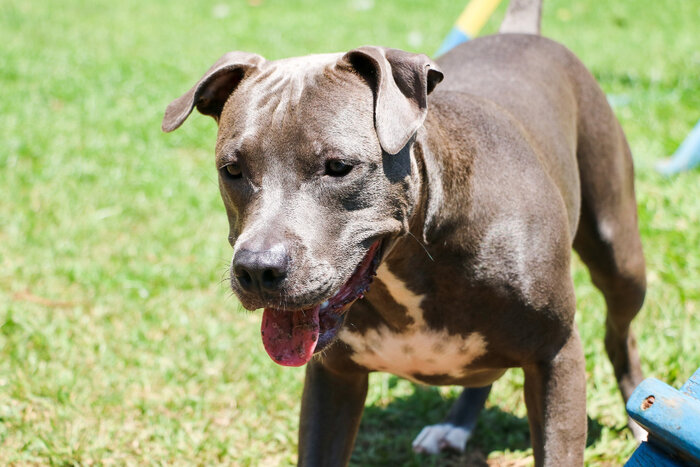
Now, about their training and care—Pit Bulls require consistent, positive training from an early age. They’re smart and learn quickly but also have a strong-willed side. With the right approach, which includes positive reinforcement, socialization, and patience, Pit Bulls can be well-mannered and sociable pets.
Proper care also extends to their physical needs. Pit Bulls are energetic and love to play, so regular exercise is necessary. This keeps them physically fit and mentally stimulated, which is crucial for such an intelligent breed. Regular vet check-ups, a balanced diet, and lots of love and attention will ensure your Pit Bull is healthy and happy.
It’s crucial to keep in mind that a dog’s environment, training, and upbringing all have a significant impact on how they behave, including Pit Bulls. Negative behaviors are often a result of neglect, abuse, or lack of training, rather than something inherent in the breed itself.
Are Rottweilers Aggressive?
Rottweilers are indeed impressive dogs, both in size and strength. Originally, people bred them for herding livestock and pulling carts. That’s right, these big dogs had jobs that required a lot of muscle and stamina. It’s this historical background that contributes to their strong, sturdy build and their incredible work ethic.
Now, onto their demeanor. Despite their tough exterior, Rottweilers have a soft spot for their families. They’re known to be extremely loyal and affectionate with the people they love.
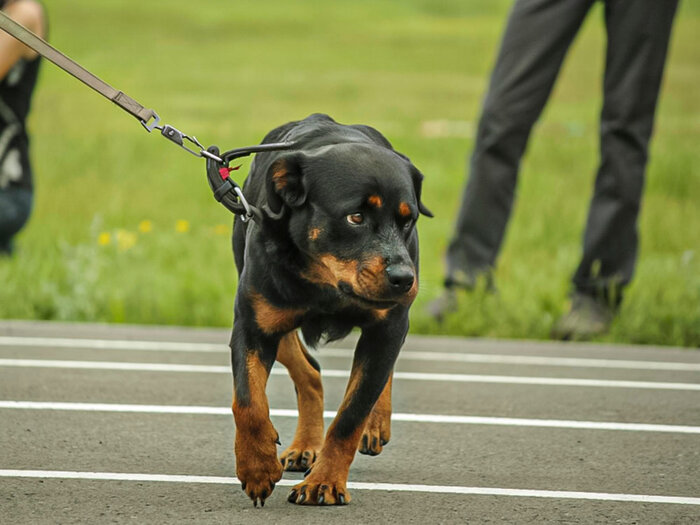
It’s like having a big, protective friend who’s always there for you. They take their role as part of the family very seriously, often becoming deeply attached to their owners.
Because of their size and strength, Rottweilers seem intimidating to those who don’t know them. However, beneath that powerful exterior lies a heart of gold.
They thrive on love, attention, and, most importantly, companionship. They enjoy being part of family activities and are known to be gentle and protective, especially around children they’ve grown up with or have been properly introduced to.
Regular exercise, training, and socialization are key for Rottweilers. Given their size and strength, starting training early and keeping it consistent is crucial.
They’re smart dogs and can learn commands quickly, but they also have strong personalities, so patience and positive reinforcement are your best tools. Socialization helps them become well-adjusted, friendly dogs who can distinguish between normal and threatening behavior in others.
Are German Shepherds Aggressive?
German Shepherds have a bit of a reputation for being aggressive, but that’s not the whole story. Yes, they are incredibly popular as police and service dogs, and there’s a good reason for that. They are super smart and trainable. This intelligence, combined with their loyalty and bravery, makes them excellent at jobs that require a lot of discipline and quick thinking.
Now, about their protective nature. German Shepherds have a strong instinct to protect their families and territory, which can sometimes be aggressive. However, this behavior concerns their commitment to keeping their loved ones safe rather than aggression.
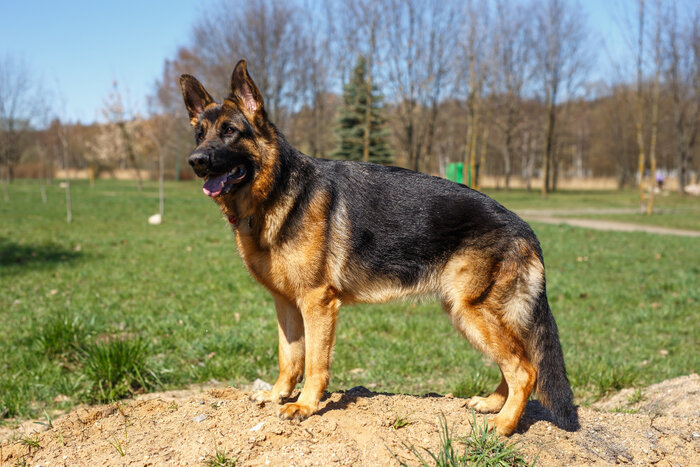
With the right training, socialization, and lots of love, they’re not just protective but also loving and a joy to have around. They prove that with understanding and care, even the most diligent and protective dogs can be gentle giants at heart.
German Shepherds are quite friendly and great with families. They adore being part of the family’s daily life, whether going for walks, playing in the backyard, or just chilling at home. They form strong bonds with their owners and are known for their loyalty and affection.
They’re so smart, they quickly pick up on commands but also thrive on mental stimulation and challenges. Early socialization helps them become well-rounded dogs, comfortable with different people, environments, and animals.
Are Doberman Pinschers Aggressive?
Dobermans have a good reputation because people often use them as guard dogs. This job makes some people think they’re naturally aggressive. But here’s the scoop: Dobermans are super smart and incredibly loyal. They’re not about aggression; they’re about intelligence and dedication.
With the right training, Dobermans turn into loving and gentle companions. They thrive on strong, positive leadership and enjoy learning new things. This breed loves to please its owners, which makes training them important and a great way to bond with them.
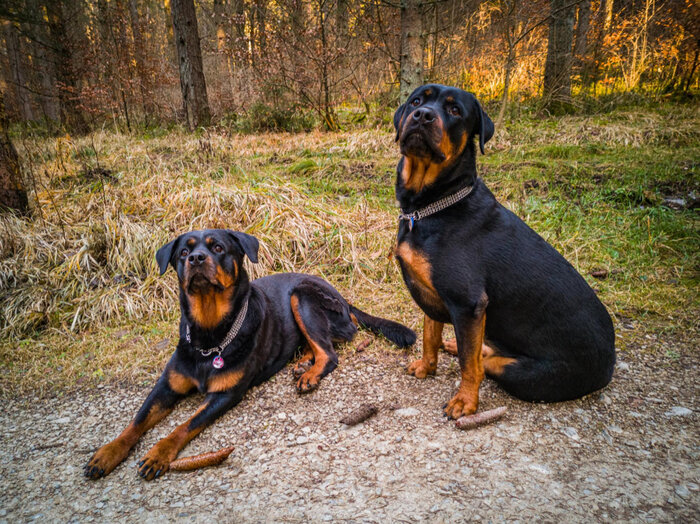
Dobermans are also very protective of their families, which is a plus. This protective instinct doesn’t mean they’re aggressive; they care deeply about their loved ones. They’re great with kids and other pets when properly socialised, showing how friendly they can be.
In a nutshell, Dobermans are much more than their guard dog reputation. They’re smart and loyal, and with the right care and training, they’re the sweetest companions you could ask for.
Are Bullmastiffs Aggressive?
Yes, they’re big dogs, originally bred to guard estates. Imagine them as the original security system for large properties. Their size and strength were perfect for keeping intruders at bay without aggression.
Despite their imposing appearance, Bullmastiffs are known for their calm and loving nature. They’re not the type to bark up a storm. Instead, they prefer to keep a watchful eye on their surroundings, all while being incredibly sweet to their families. It’s like having a big, protective friend who loves to hang out and be part of the family activities.
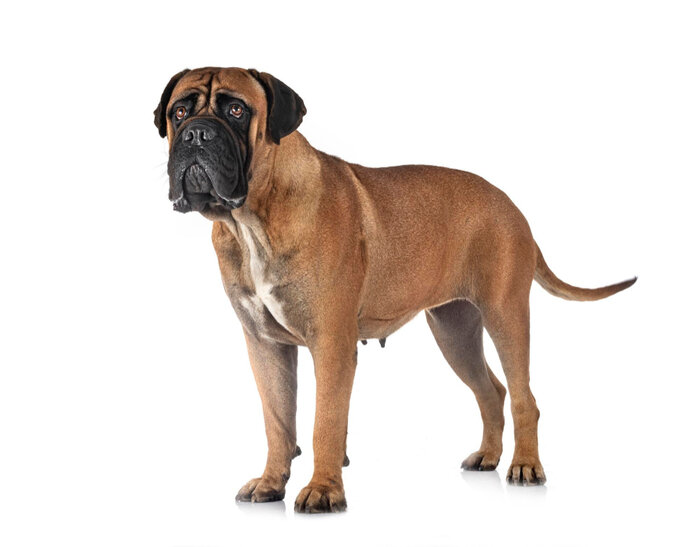
With Bullmastiffs, their loyalty to their family is unmatched. They form strong bonds and often become particularly attached to one family member, though they love everyone. They’re especially good with kids, showing patience and gentleness.
Exercise, training, and socialization are important for Bullmastiffs, just like with any large breed. They’re smart and learn quickly, but they also have a bit of an independent streak. With positive reinforcement and consistency, Bullmastiffs can be well-mannered and social dogs.
The Best Dog for You
Choosing the perfect dog to join your family is easier than it might seem, especially if you keep a few key tips in mind. Remember, the dog is going to be an important part of your family.
Before you make this life-changing choice, it’s crucial to take a step back and really think things through. Being a responsible pet owner means asking yourself some hard questions and honestly considering your answers.
If you do this, you’re on your way to having a fantastic time with the dog you eventually choose. This is especially important when thinking about dog breeds and their temperaments, as some can be more aggressive than others. Making a thoughtful choice can lead to a rewarding friendship with your new furry family member.
Related Search: 10 Most Obedient Dog Breeds
How to Understand and Prevent Aggressive Nature
Training and socialization are the keys to a happy dog. Training and socialization are super important to prevent aggression in dogs. Think of it like going to school and learning how to behave and make friends.
Training
Teaching your dog commands like sit, stay, and come here helps them understand what you expect from them. Training should be fun and full of treats and praises. It’s like playing a learning game with your dog!
Socialization
This means getting your dog used to different people, animals, places, and experiences. The more they see and experience, the less likely they are to be scared or aggressive in new situations.
Know how to be a dog parent
Always be a responsible dog owner. Owning a dog is a big responsibility. It’s not just about feeding them and taking them for walks. It’s about understanding their needs, training them well, and making sure they’re healthy and happy. When you’re a responsible owner, your dog is less likely to show aggression because they feel safe and loved.
Strategies for Dealing with Potential Aggression
Stay Calm: If a dog feels your stress, they might get stressed too. So, always try to be calm around dogs.
Understand Dog Body Language: Learn to understand when a dog is scared, nervous, or unhappy. This can help you know when to give them space.
Get Professional Help: If a dog is showing signs of aggression, it’s a good idea to talk to a vet or a dog trainer. They know lots of ways to help.
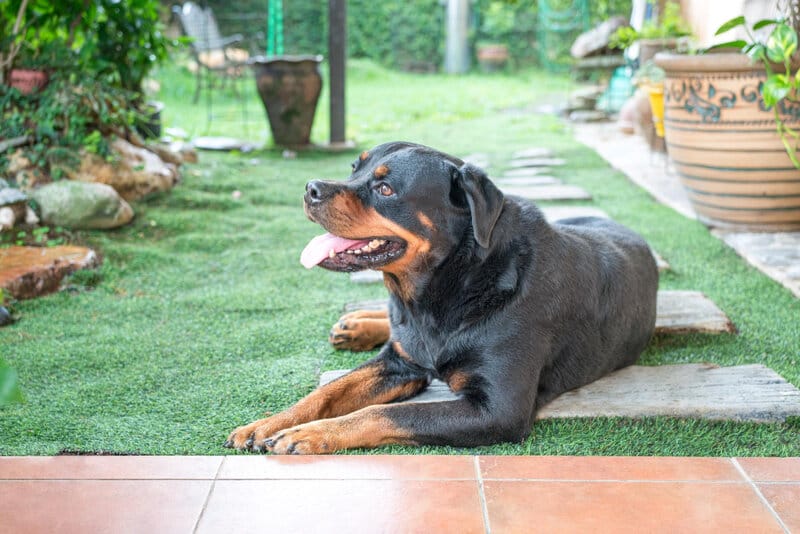
Beyond the Breed – Focusing on Individual Dogs
Every Dog is Unique
Just like people, every dog is different. It’s important to look at a dog’s personality and history, not just its breed. In addition to its breed, a dog’s experiences, training, and treatment all influence its behavior.
Real-Life Stories of Amazing Dogs
Let’s look at some examples of dogs from breeds often labeled as aggressive but who are actually well-behaved and affectionate:
Max the Pit Bull: Max was adopted from a shelter and is now a therapy dog, visiting hospitals to cheer up patients with his gentle and loving nature.
Bella the Rottweiler: Bella helps her owner, who has a disability. She’s trained to bring things, open doors, and is always gentle with children.
Rex the German Shepherd: Rex works with kids in a reading program, sitting quietly while they read books to him, proving how friendly and patient he can be.
These stories show that it’s not about the breed. Dogs, like people, are individuals with amazing qualities.
The Impact of Stigma on Certain Breeds
The Problem with Labels
When people label certain dog breeds as aggressive, it can have a big impact. Dogs like Pit Bulls or Rottweilers often face challenges because of these labels:
Adoption Rates: These dogs are sometimes less likely to be adopted from shelters because people are afraid they might be aggressive.
Public Perception: Stereotypes can have an impact on how people perceive these breeds, which makes life more difficult for these dogs and their owners.
Media’s Role in Dog Breed Perceptions
Movies, TV shows, and news stories can shape how we see different dog breeds. Often, certain breeds are shown in a scary way, which isn’t fair or true.
Keep in mind that movies and stories aren’t always based on real events. Also, don’t judge a dog by its breed; look at its acts and personality.
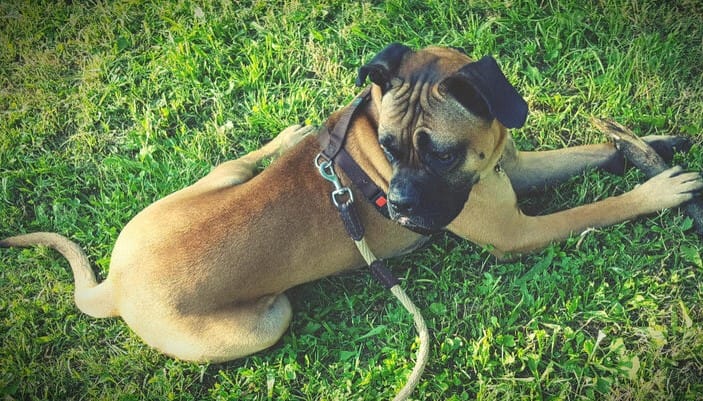
Conclusion: Understanding and Kindness
In this article, we’ve learned a lot about dog aggression and how it’s not just about the breed. We’ve seen that with proper training, socialization, and care, all dogs can be loving and great companions. It’s important to remember:
- Every dog is unique and deserves a chance to be understood and loved.
- Training and socialization are key in preventing aggression.
- We shouldn’t judge a dog just by its breed.
So, let’s approach every dog with an open mind and kindness. By understanding them better, we can make the world a better place for all dogs and the people who love them.
Image Credit: Freepik

